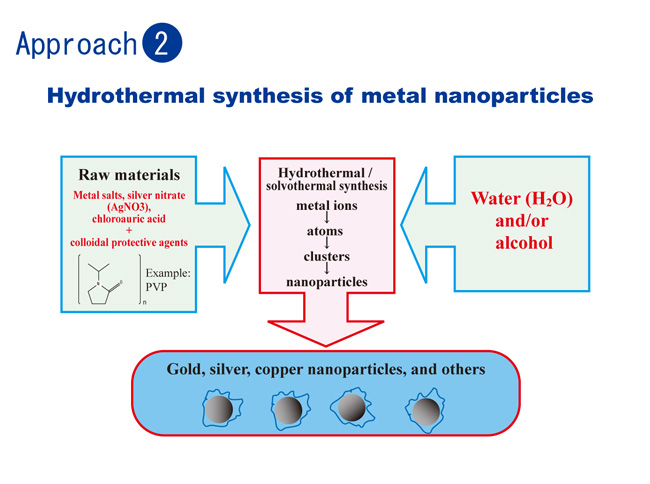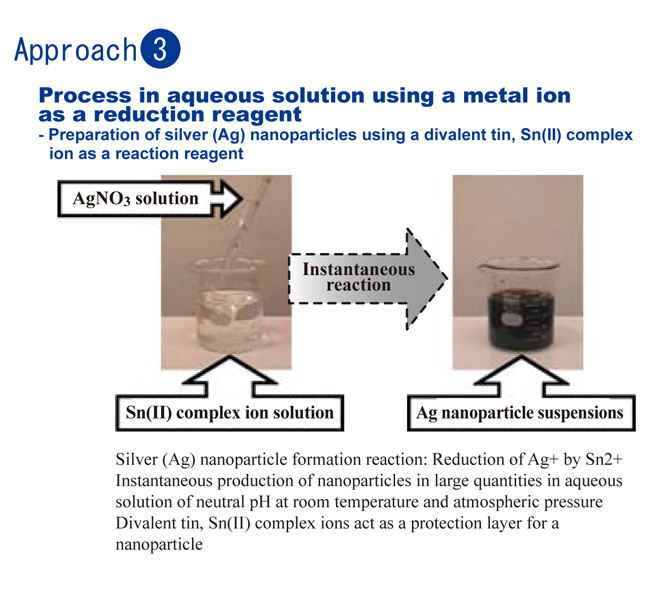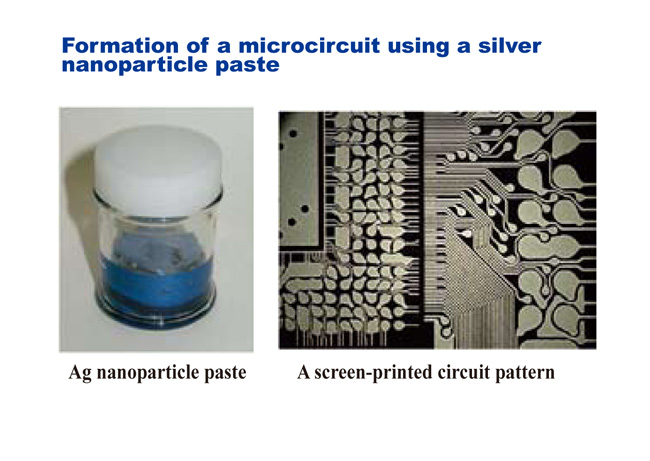Development of nanoparticle preparation methods from three different approaches
– Applications in the formation of fine wiring on a polymer substrate
In order to realize the next-generation sheet devices, it is necessary to make available materials that can be used to form wiring on a flexible polymer
substrate. Generally, the melting points of metals used in electronic circuits are high, in the vicinity of one thousand degrees Centigrade (1000° C.).
It is known, however, that metal nanoparticles with diameters in the order of less than several tens of nanometers exhibit unique properties, such as
reduction in melting points and low-temperature sinterability. This allows conductive, thin-film metal particles to be made through sintering at
temperatures as low as three hundred degrees Centigrade (300° C.) or less. Taking advantage of these characteristics unique to metal nanoparticles,
the project thus aims to achieve, under the Research theme 1, an effective method for forming wiring, in which a fine-pitch wiring pattern made of
such metal nanoparticles in the form of paste is first printed using a screen printing technique and then sintered on a polymer sheet at a low temperature.
A complex process is also required to produce metal nanoparticles and only a small quantity can be synthesized at a time with the conventional
technologies. In the search for a solution to this problem, the following three research and development approaches are considered promising in
realizing mass synthetic methods for yielding highly controlled metal nanoparticles in large scale at low cost, with low environmental impact and
energy consumption: (1) thermal decomposition / amine reduction methods using a metal complex as a starting material, (2) a hydrothermal
synthetic process using a supercritical fluid as a reaction field and (3) a process in aqueous solution using a metal ion as a reduction reagent.
Through these studies, which include efforts to elucidate the particle growth mechanism of metal nanoparticles, endeavors to design functions that take the thermal properties of metal nanoparticles into account, and the elucidation of the microstructure controlling such nanoparticles, the project
expects to develop nanomaterials that can be used to form fine wiring on a flexible polymer substrate by means of screen printing, and establish
technologies that can improve fine-wiring performance through the use of an advanced nano-plating technology.
|




